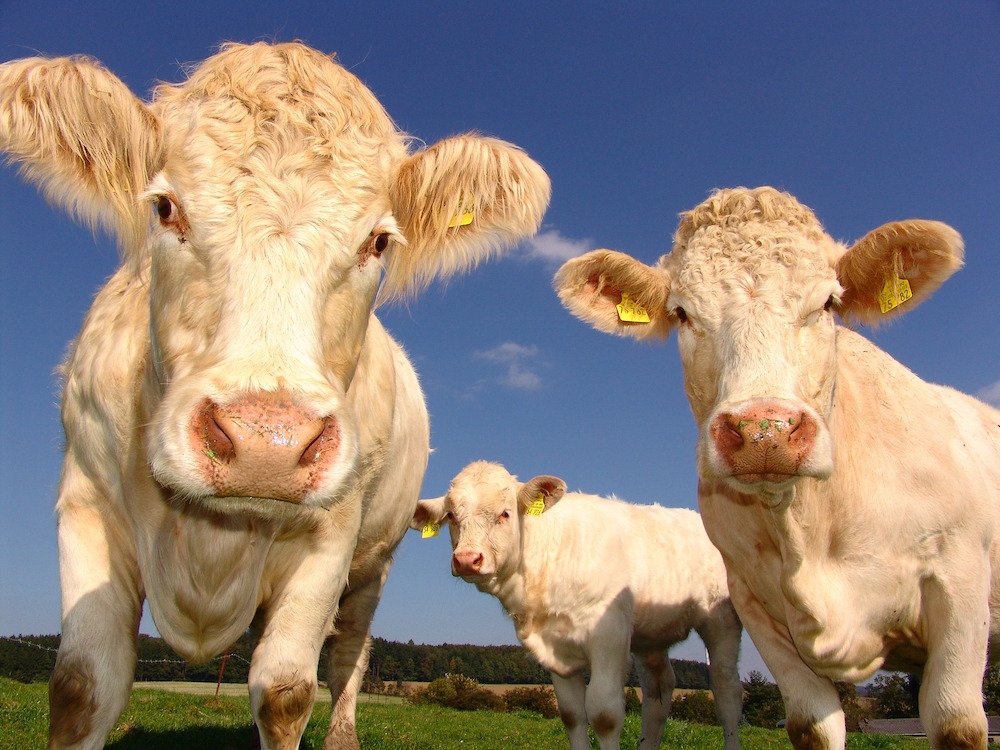You probably already know Pennsylvania is the mushroom growing capital of the world, that it’s flush with cows and laying hens, and that each year it ships jaw-dropping quantities of potato chips and pretzels.
But did you know the state is the top producer nationwide for export-grade hardwoods? How about that it boasts the top horse breeding farms in the country? Or that it ranks second in the nation for organic farm sales?
A comprehensive new report by Fox Management Consulting (involving 50 students, and 5 advisors) and Econsult Solutions, commissioned by Team Pennsylvania and the Pennsylvania Department of Agriculture, examines threats and opportunities facing agriculture in Pennsylvania. With $136 billion in yearly output and over 9-percent of all PA jobs, the future of the sector is intimately tied to the future of the commonwealth.
Changing Consumer Preferences
Customers, like agriculture, are changing. Bill Black, who oversaw the Fox Management Consulting class which accompanied the project, remarked, “I don’t think anyone realized the level of consumer interest in organics and local. It’s just one of the things that crept up on the marketplace.”
Between 2012 and 2016, production of organics in Pennsylvania more than doubled, topping $659 million in 2016. Yet many farmers are still reluctant to adopt organics, unsure if the trend will stick.
Meanwhile, some consumers are moving away from dairy altogether. In the last few years, milk dumping became a major concern for farmers across the nation as consumers moved towards alternative products, like soy and almond milk.
Bill Kitsch works closely with farmers in his role as vice president and agricultural lending manager with PA-based Ephrata National Bank. He worked as an advisor on the project and says the agricultural sector faces unique constraints in adjusting to changing demand.
“Farmers have to make decisions about how many hens to buy or how many cows to bring to milk 18 to 24 months in advance.” Kitsch explains this long time horizon makes it difficult for farmers to be agile as consumer preferences are in flux.
The report also pointed out that Pennsylvania lacks sufficient milk and protein processing facilities. This leaves farmers trucking milk long distances, decreasing its shelf life, increasing costs for farmers, and reducing the economic benefits to the state.
To better support farmers, Fox MC and Econsult recommended increasing processing capacity within the state, education opportunities, and financial support for farmers as they adjust their operations to line up with demand.

Opportunities for Marketing Collaboration
Even as farmers wrestle with organics, Pennsylvania is already well-positioned to respond to another consumer trend. With 88.3-percent of state farms owned by families or individuals and more than half selling less than $10,000 each year, the state is primed to meet consumer demand for traceable and local food.
The PA preferred brand, approved in 2004 and enacted in 2011, already markets the state’s agricultural wealth. The report argues that PA Preferred should shift its brand identity to become even more synonymous with local goods and traceable food.
PA Preferred Brews, launched in 2017, is a subsection of PA Preferred aimed at supporting Pennsylvania’s $5.8 billion brewing industry. To qualify, breweries must brew in, and use agricultural commodities from, Pennsylvania. In addition to providing branding, the program promotes branded taps, handles, and coasters at venues across the state and has partnered with the Penn State Extension to further support local hops growers.
Programs like PA Preferred create increased value for food manufacturers, producers, and consumers. Through continuing to innovate under this brand, PA can bring new growth and synergies to other sectors with agriculture.
Building the Next Generation of Farmers
While marketing, education, and incentives are helpful in supporting farmers, the state faces another challenge. With 75,000 new and replacement jobs opening in the sector in the next decade, accounting for approximately 2-percent of all state jobs, developing a new agricultural workforce is a major concern.
“There aren’t enough young farmers because they see how hard their parents and grandparents are working and they see how little they’re making,” explains Black. “If the Department of Agriculture can help farmers be more profitable, then the industry would be more attractive to younger farmers.”
Increasing automation is driving a need for STEM skills within agriculture. The Pennsylvania Department of Agriculture has encouraged several programs to support education, including the Jobs that Pay Apprenticeship Program for STEM Jobs in Agriculture, introduced by the Wolfe Administration in 2017.
The report also encourages loan forgiveness programs for high-shortage careers like large animal veterinarians, increases in agricultural education in existing STEM programs, and exploration of an ex-offender to work program to alleviate workforce shortages.
From climate change to new technologies, consumer preferences to workforce shortages, this analysis from Fox MC and Econsult Solutions highlights that many things about the future of Pennsylvania agriculture are uncertain. Yet when it comes to the strategic importance of the sector for Pennsylvania, and the significant impact that state policies and incentives will have on its future, the report leaves little room for doubt.

